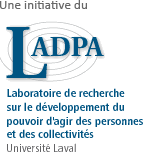Marc Rouzeau (IRTS de Bretagne – CRAPE),
Résumé Croisant une perspective politiste et une analyse anthropologique, cet article cherche à éclairer le “développement du pouvoir d'agir” des habitants et des collectivités lorsque ceux-ci sont confrontés aux démolitions de logements sociaux.
A partir de l'exemple français, trois contextes sociopolitiques sont repérés qui, chacun à leur manière, pèse sur la conduite des opérations et sur les relations entre les différents acteurs en présence : antériorité locale pour la rénovation urbaine et diversification des interlocuteurs – bouleversements, débordements conflictuels et innovations – inscription dans une matrice élargie et dynamisation des instances de démocratie de proximité.
L'implication des habitants dans ces configurations locales orientées vers la rénovation urbaine passe alors par trois paliers : initié par l'émotion, l'intéressement nécessite une transformation des échelles de valeurs et des désirs. Au-delà, à travers la prise de rôle, l'habitant intègre activement la configuration et interagit sur les fonctions et les manières de faire des autres acteurs. L’arrimage suppose ensuite de surmonter les épreuves de la rénovation urbaine, en particulier celles liées au déménagement, au sentiment de deuil ou encore à l’accroissement des dépenses.
Mots-clés Rénovation urbaine, participation des habitants, démolition reconstruction,
Abstract Through the crossing of a political perspective and an anthropological analysis, this article tries to shed some light on the "development of the power of acting of the inhabitants and communities which are confronted to the demolition of social housing.
From the French example, three sociopolitical contexts are located, which, each in their way, press on the driving of the operations and on the relationships between the various actors in presence: local anteriority for the urban renovation and diversification of the interlocutors – turnover, conflicting overflowing and innovations - registration in a widened matrix and a dynamism of the authorities of democracy of nearness.
The people implication in these local configurations directed to the urban renovation passes then by three steps: introduced by the emotion, the profit-sharing requires a modification of value scales and desires. Beyond, through the role play, the inhabitant integrates actively the configuration and interacts on the functions and the manners to make of the other actors. Then the stowage supposes to surmount the urban renovation events, especially those concerning the move, the lost feeling or the charges growing.
Keywords Urban Renovation, Inhabitant Participation, Demolition Reconstruction |


 | 
|
| © 2026. Faculté des sciences de l'éducation, Université Laval, tous droits réservés. Site réalisé par le Centre de services et de ressources en technopédagogie. ISSN – 1918-3399 |




 Page précédente
Page précédente



 PDF]
PDF] Haut
Haut